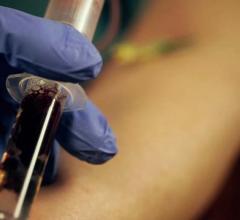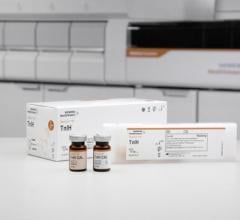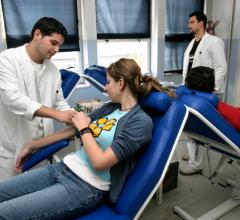November 20, 2015 — Boston Heart Diagnostics announced the launch of StatinSmart, an at-home saliva laboratory developed test that analyzes the SLCO1B1 (Solute Carrier Organic Anion Transporter 1B1) gene for a variant known to increase an individual's risk for developing statin-induced myopathy.
StatinSmart helps patients understand how their bodies will process a statin and encourages them to discuss with their healthcare provider the type of statin that is best suited to their genotype. With this information, patients can work with their healthcare provider to personalize a plan to lower cholesterol without unnecessary side effects.
Boston Heart currently offers the SLCO1B1 genotype test through healthcare providers, but this is the first time this laboratory-developed test will be offered directly to individuals online at statinsmart.com. All orders require physician authorization and include support for individuals to discuss their genotype result with their personal healthcare provider.
SLCO1B1 is one of the genes that instructs the enzymes that process statins in the liver. The SLCO1B1 genotype was identified at the University of Oxford in the United Kingdom. Boston Heart holds the exclusive U.S. license for the SLCO1B1 genotype test. To date, Boston Heart has performed over 250,000 SLCO1B1 genotype tests.
Although statins have been shown to significantly lower heart disease and stroke rates, studies estimate that of the 25-50 percent of patients with cardiovascular disease who stop taking their statin medications as directed, 60 percent cite muscle pain as the primary reason for discontinuation. A variant in the SLCO1B1 gene can cause the statin to not be fully processed, with the excess statin then moving through the blood stream into the muscles and causing pain. About 25 percent of the population has one or both variants, making them up to 4.5 to 17 times more likely to suffer muscle aches and pain.
In a survey of individuals who have experienced side effects from statins in the past and have stopped taking them, 89 percent would consider taking statins again if they could potentially reduce the side effects. Research shows that patients who received SLCO1B1 genotype-guided therapy were more likely to fill their statin prescription, take the medication as directed, and ultimately lower their LDL cholesterol.
StatinSmart includes an easy-to-use saliva kit and is shipped to the individual for collection, then returned to Boston Heart's CLIA-certified and CAP-accredited laboratory in Framingham, Mass., for analysis. A personalized report and other information needed for individuals to prepare to discuss their result with their healthcare provider are accessible through a secure StatinSmart portal.
For more information: www.bostonheartdiagnostics.com


 October 09, 2019
October 09, 2019 









